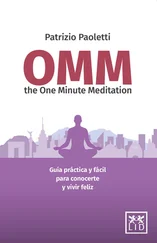Only a few dog walkers were in the park that morning, most of them elderly women, one with half a dozen Bichons moving like a fog along the pathways arcing down to the river. When the wind whipped up off the Hudson and caught my neck, I decided to turn back. No longer such a young man, I feared a cold would lay me out for a week. As it happened, Dr. Sebastian had no other appointments and directed me into her consulting room almost as soon as I walked in the door. I remember the room being spare, with white walls and modern furniture, a severe space stripped of distractions or anything that might trigger strong associations in the mind.
‘Customarily I take this week off each year, but seeing as you are Peter’s father-in-law I make an exception,’ she said and smiled. She was my age, not a native English speaker, and somehow that made the situation seem even more serious. I realized how worried I had been since the events of Saturday and, perhaps more to the point, since telling Peter and Meredith about my strange confusion. What I had really been hoping for, I understood, was for my daughter and son-in-law to reassure me that there was nothing to worry about, encourage me instead just to get on with life, not to refer me to a memory specialist who might discover something seriously amiss in the workings of my brain. I realized too that ‘memory specialist’ was a euphemism: the woman was nothing less than a neurologist, and that term, more than the other, gave me palpitations. I was seeing a neurologist for the first time in my life because the people closest to me suspected problems with my brain. How could I blame them given the glitch I had revealed? It begins with such blips, failures of ordinary language, searching for common phrases that remain elusive, blacking out an entire recent conversation or correspondence and proceeding as if whatever agreement has been reached, whatever information rehearsed, had never been mooted.
‘I would like you to begin by telling me what you have been detecting,’ Dr. Sebastian said from behind her desk. She used a pen that looked antique, taking notes in a ledger of the kind that might be used for financial accounts, a reckoning of profit and loss.
I told her what I had experienced over the weekend, recounting the confusion about the appointment with Rachel just as I had to Meredith and Peter.
‘And previously? This has occurred other times?’
‘I am not aware of anything like this ever happening in the past.’
Dr. Sebastian nodded, made a few notes, and then took me through a series of questions to ascertain whether I was experiencing any aspects of dementia. She asked me the year and the season, the date and day, she wanted to know where we were, both generally and precisely, she gave me three words to remember and asked me to recall them later in the consultation, wanted me to spell various other words and then to spell them again in reverse, to count backwards from one hundred by a factor of seven, asked me to identify and name a number of everyday objects that she produced from a box, had me repeat particular phrases, write complete sentences, follow written commands, and draw a simple design of geometric shapes. I felt like a child. When it was all over I asked her how I had scored.
‘Faultless. You did not miss a solitary one. I would like to refer you for a scan, just to be certain there is nothing irregular internally, to exclude stroke or tumor and suchlike.’
‘Stroke or tumor?’
‘Listen, Professor O’Keefe,’ she said, stretching her hands and bringing the fingertips together into a steeple, ‘it is improbable, but in the absence of any observable memory or cognitive problems, I would like to corroborate there is nothing wrong inside. There is no history of Parkinson’s in your family?’
‘None whatsoever.’
‘Alzheimer’s?’
‘Not that I know of.’
‘No discussion ever of forgetful family members?’
‘Everyone died of cancer, heart failure, or old age.’
‘Meaning?’
‘They slipped off in their sleep at a very advanced age, so I suppose that was heart failure as well.’
Dr. Sebastian nodded and told me I could get the scan done on Wednesday if I did not mind, and of course that suited me fine. By the end of the appointment I wanted certainty rather than further questions.
‘But what does it mean, if there doesn’t end up being any sign of a neurological problem?’
Twirling her pen between her fingers, she averted her gaze.
‘Then we must consider if there may be some psychological explanation.’
Dr. Sebastian looked over the tops of her glasses in a way that reminded me of a teacher administering a stern lesson or warning. Under other circumstances, in a different context, I would not have thought twice about making my interest in this woman as clear as modesty and respect might allow. She wore no wedding ring, although I knew that this did not necessarily signal availability. There were no photographs on her desk or on the walls of her office, only her degrees, all of them from Harvard, mounted and framed and hung in such an orderly grid I knew professionals must have done it. That precision, as well as the care she took with her grooming and clothes, the black wool slacks and black shoes, the creamy silk blouse, the total absence of jewelry except for a watch, made from a silvery metal, reminded me of the only other woman with whom I had recently been in love — the only woman I had loved in a very long time — and made me wish that Dr. Sebastian and I were not meeting for the first time in this particular situation, that I might have met her when I did not look so undone by the odd experiences of the previous weekend.
‘I take you to mean I might be going crazy.’
She raised her chin so that she could look at me straight through the lenses.
‘No, Professor O’Keefe, I mean there are some number of reasons, or ways, that the mind can blot out certain events.’ What was her nationality, I wondered? German, possibly, in which case we might have had an easier conversation in her mother tongue than in mine. ‘It would be worth speaking to someone. Do you already have a therapist?’
‘I’ve never been in therapy.’
‘Do you know any therapists socially?’
‘Not in New York.’
‘I could make a referral.’
‘I’ll have to think about it.’
I left the appointment wondering what psychological causes could possibly produce such a specific void in my memory. As I walked back to the subway at 72nd Street I tried to think about trauma as the potential cause of that blackout, but could come up with no particular reason why planning to meet Rachel, who strikes me as a solid student unlikely to prompt any variety of strong emotional or psychological response, could have triggered traumatic amnesia. Nor did I know for certain whether this was what Dr. Sebastian meant, or if the mind even acted in this way. Then it occurred to me that perhaps something had happened on Saturday afternoon, some other form of trauma unrelated to Rachel, and the communication with her was swept away with my forgetting whatever that other trauma might have been. Possible though it remained, this hypothesis did not seem convincing.
In those minutes walking through my old neighborhood I thought of the innumerable evenings when, returning from Columbia after a day of teaching, I would stop for groceries at Fairway, for fresh fish or oysters at Citarella, a nice cake for dessert, and then go home to whip up a dinner for my wife and daughter, back when it still seemed — despite the small irritations of an ordinary married life — that I was in a family capable of persisting in one form or another until the day I died. My parents did not divorce and I believed when I married Susan that she and I would be together forever. Her own parents provided a much different model, but I wanted to believe in the permanence of our relationship, in the possibility of finding ways to adjust our behavior as the decades progressed, accommodating ourselves to the shifting needs and desires of the other, that in so doing we would be able to continue returning to the marital bed with a sense of security as well as hope, or if not hope then an ever diminishing mystery, a broadening knowledge of the other person, the idiosyncrasies of her desire, the textures of her body, the way parts expanded and contracted quickly or over longer periods of time. I could not then imagine, not on those nights of impromptu cooking, that Susan had lost interest and that her losing interest would infect my professional life, forcing not only my departure from the home, but from my own country.
Читать дальше












